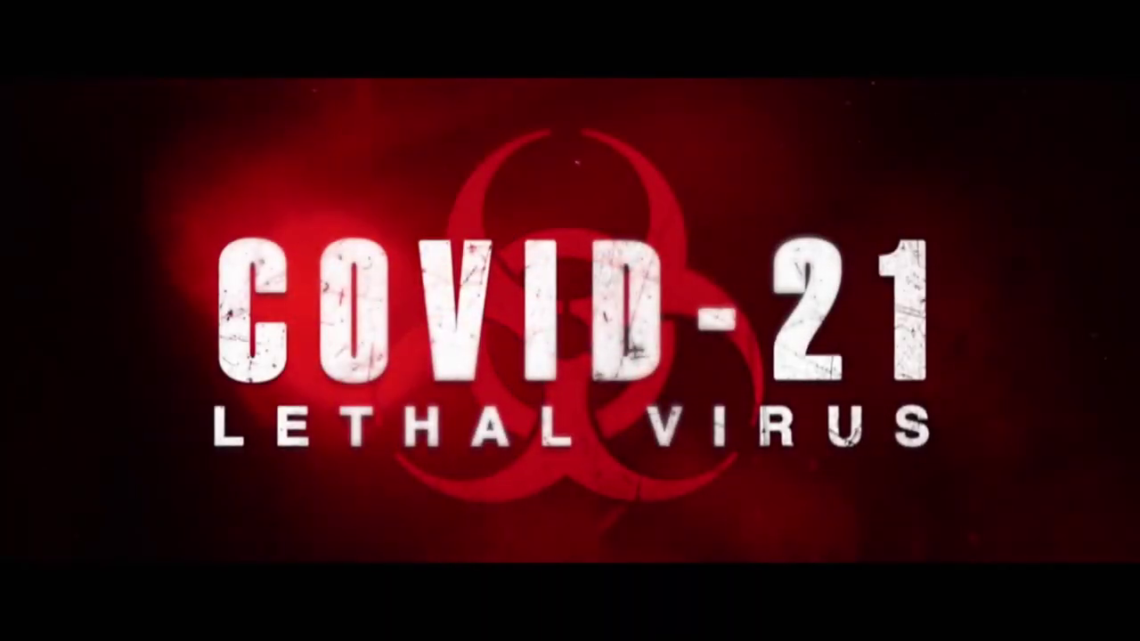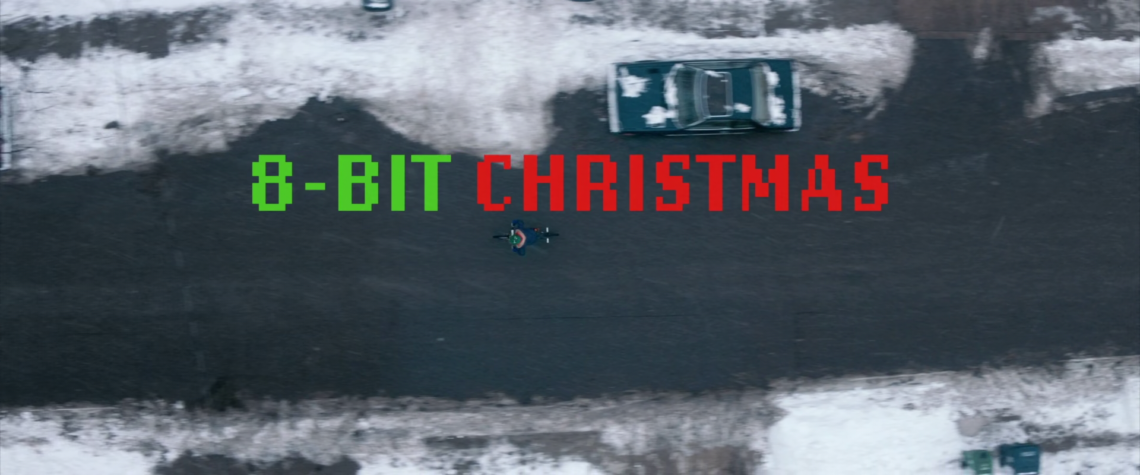-
#595 – Contagion (2011)

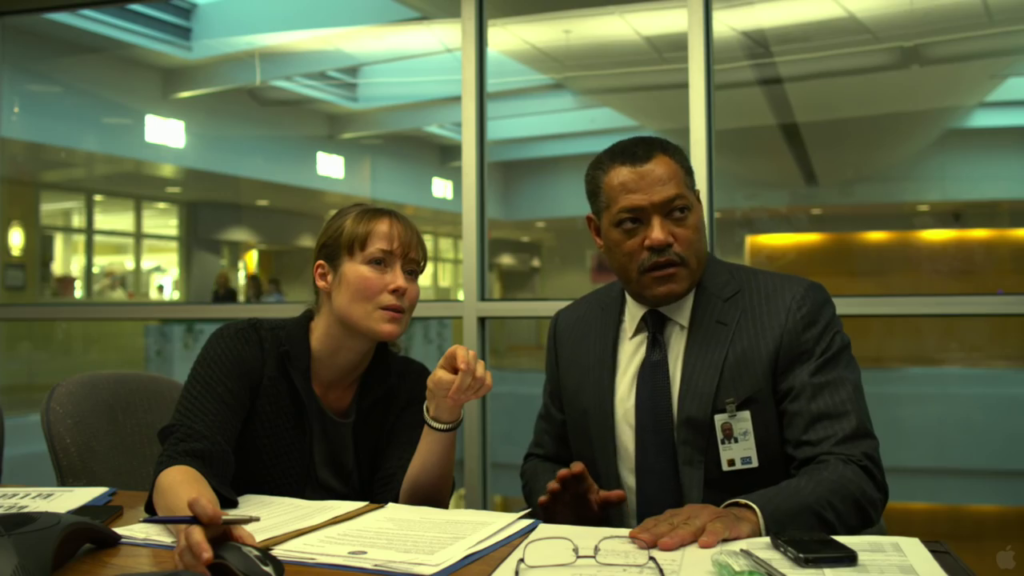
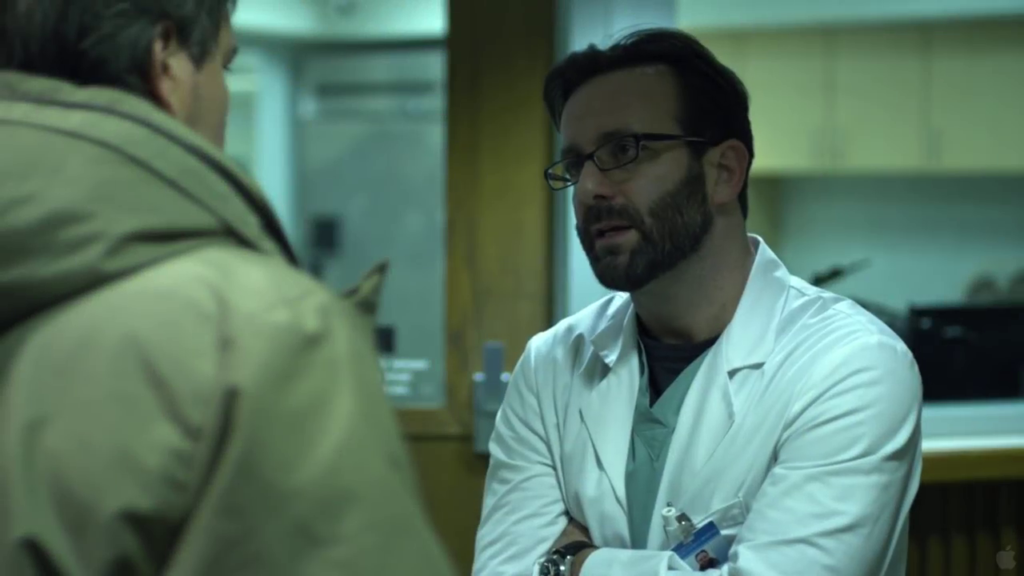
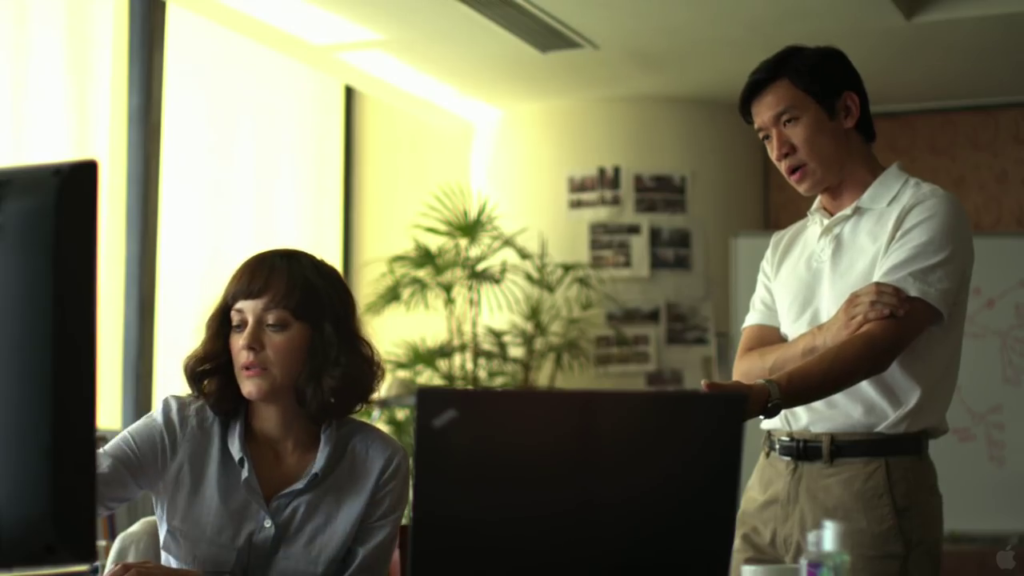
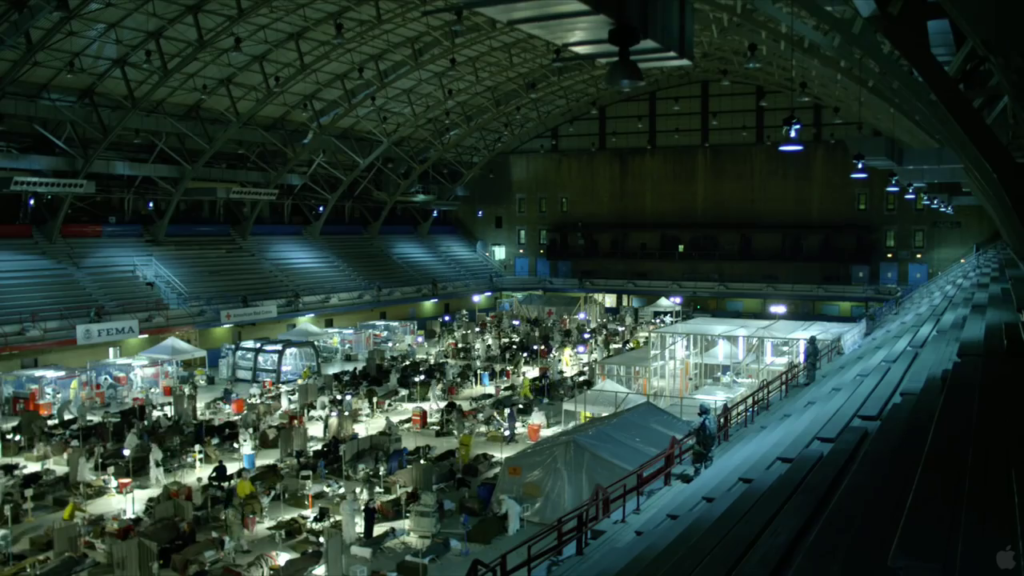

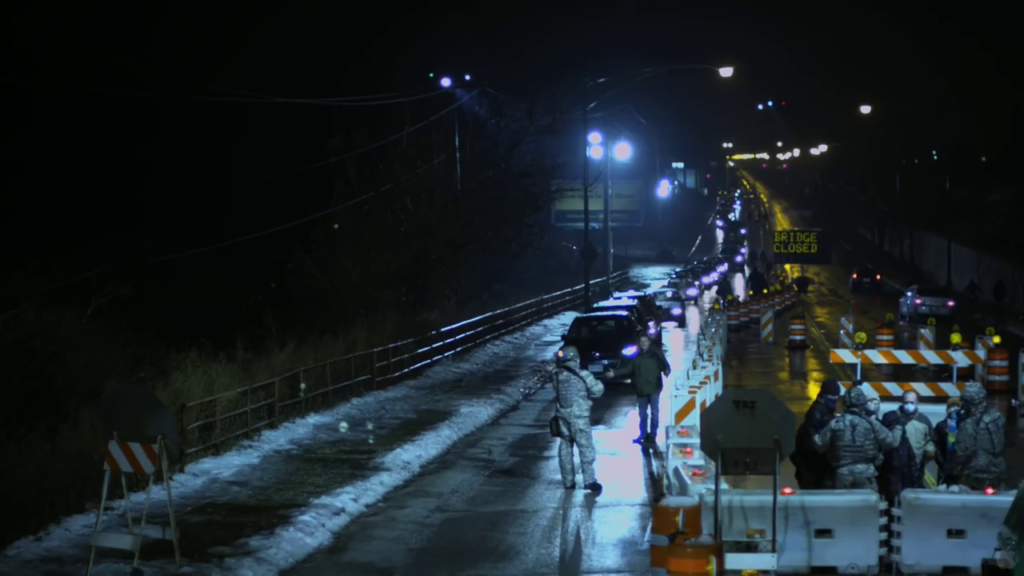

Contagion (2011)
Film review #595
Director: Steven Soderbergh
SYNOPSIS: A new virus originating in China quickly spreads around the world, leading to mass death and panic. As scientists struggle to develop a vaccine, the breakdown of social order and the rise of conspiracy theorists sets in, and the virus quickly spreads out of control…
THOUGHTS/ANALYSIS: Contagion is a 2011 science disaster film about a global pandemic, and the race to find a vaccine. Starting off in Hong Kong, the film tracks a number of characters as a mysterious virus infects and kills people around the world, resulting in a global pandemic. The core of the film follows the impact of the virus on the world’s population, but mostly on the scientists who are trying to develop a vaccine. We get a good look at a variety of perspectives in the film, although none really become the central focal point; as mentioned, each character offers their own perspective, without one taking precedence over the others. That said, there does feel like a bit of an imbalance, and some of the stories seem to be missing some scenes that would round off their particular narrative. Also, the film is very U.S. centric for a global pandemic, and we never get a sense of what is happening in other parts of the world other than the U.S. and China. On the whole though, the story is very tightly packed with different perspectives, and obviously the central plot point is the virus, not the personalities, so this narrative technique fits the film well.
I suppose it’s impossible to look back at this 2011 film now without comparing it in some way to the Covid-19 pandemic. There are a lot of similarities in the film: from the origins of the virus, a race for a vaccine, whining conspiracy theorists, social distancing, and the rate of reproduction. It’s perhaps easy to call it prophetic, but it’s actually a credit to the film’s attempt to create a ‘realistic’ scenario, and the amount of research undertaken by the director, working with real scientists to understand what they would do in the vent of a pandemic. So the film isn’t really prophetic, it’s just good research. However, it’s difficult to view the film as a “what-if” scenario when a lot of it became reality, and you’ll probably be constantly comparing it to what actually happened near ten years later. Whether this is to the film’s acclaim or detriment is up for debate. It should be noted that the ensemble cast do give a strong performance, so that’s something that allows the film to stand on it’s own. Overall, Contagion does what it sets out to do with researched precision that brings a speculative scenario to life. However, because of this, it’s proximity to actual events nearly a decade later might be a bit distracting.
-
#594 – Heart of a Dog (1976)
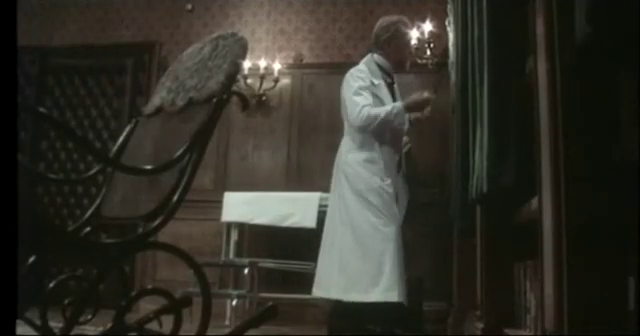

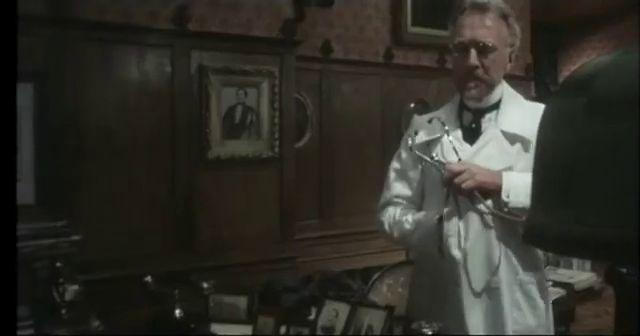

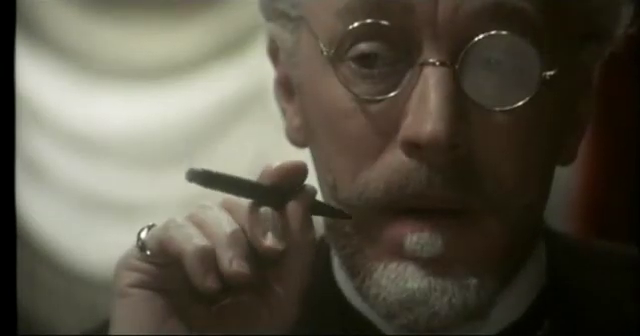
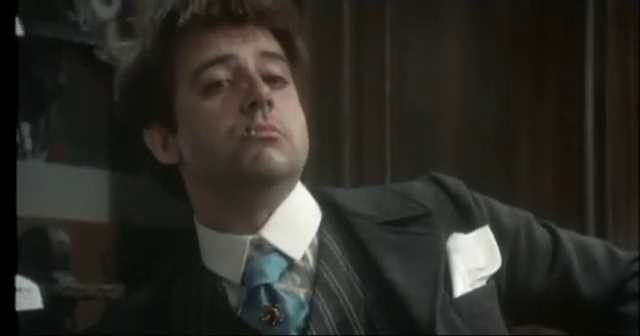
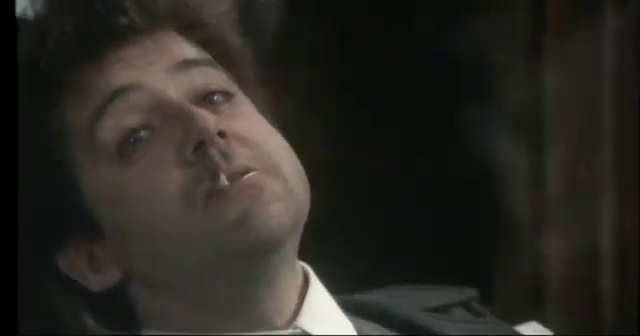
Heart of a Dog (1976)
Film review #594
Director: Alberto Lattuada
SYNOPSIS: A stray dog on the streets of Moscow is taken in by noted surgeon Professor Preobrazhensky, with the intent of using him in an experimental procedure to transform him into a human being. While the experiment is a success, Bobby, as the Professor has called him, quickly becomes an uncontrollable nuisance, leading to constant tension between him and the Professor…
THOUGHTS/ANALYSIS: Heart of a Dog is a 1976 Italian comedy film based on the 1925 novel of the same name by Mikhail Bulgakov. It is the first adaptation of the film, released while the novel was still banned in its native Soviet Union, and likewise before the release of the successful 1988 film adaptation made there. The story follows the novel fairly closely, with a stray dog being taken in by Professor Philip Philipovich Preobrazhensky, a surgeon who has been performing operations to transplant animal organs into humans to replace them. His next experiment involves the reverse: transplanting human body parts into a dog. The result is that the dog transforms into a human form, but unfortunately for the Professor, his subject’s views are vastly different than his own, setting up a classed-based conflict between the two. The story is fairly close to the novel, with only a few minor changes I noticed compared to the 1987 film, which is a very strict and accurate translation. The tone is perhaps a little lighter as it is geared to more of a comedic approach to the source material, but it still has a fair amount of grit to it in reflecting the state of the Soviet Union at the time. It’s never really laugh-out-loud funny, but you certainly get the point of the scenes and what they are satirising, without it biong too direct and literal.
The main issue with this film is actually nothing to do with the film itself: it captures the beats of the novel and its message fairly well. The problem is it just can’t compete with the version made in the Soviet Union ten years after this version: the whole point of the film relies so much on the time and place it was set, and an Italian/German co-production will never be able to compete. An issue with the film itself is that the latter half doesn’t really have too much of a direction, and is just scenes of Bobby and Philip arguing with one another about different things. The performances, including Max Von Sydow as the Professor are good, But again, in a choice between this version and the 1987 version, you’ll always choose the latter. This 1976 version does everything it needs to do, but without that context of being set in the Soviet Union and being made by those who understand and lived through the source material, this version will always come up short.
-
#593 – Heart of a Dog (1988)
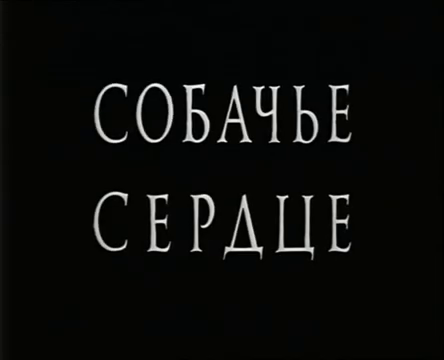
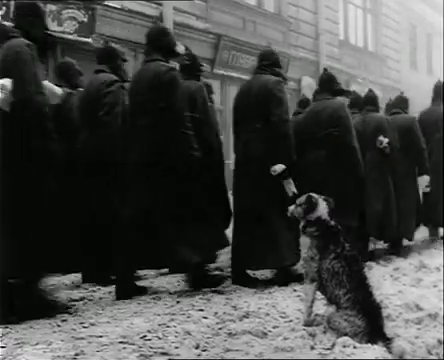

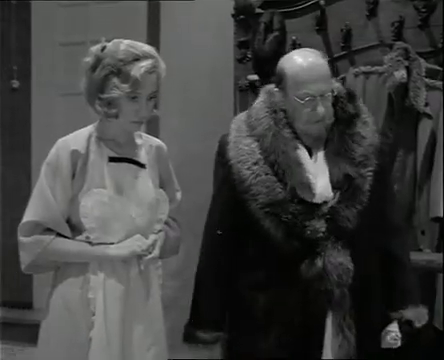
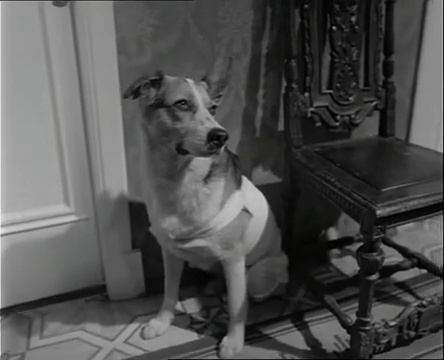
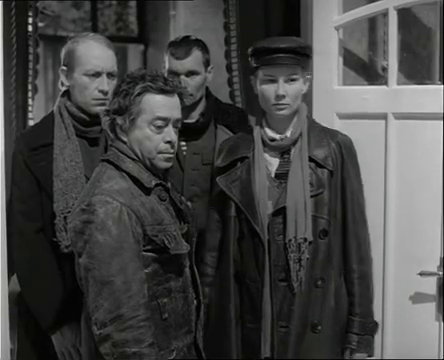
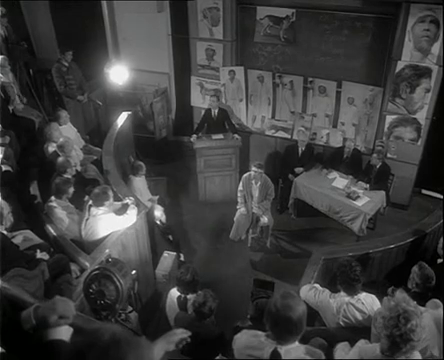
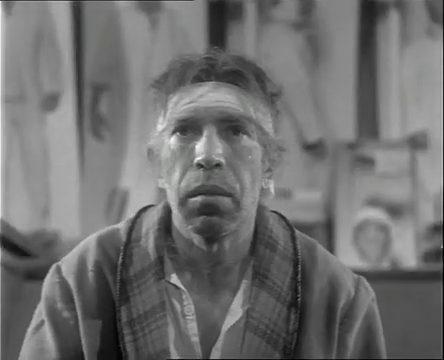
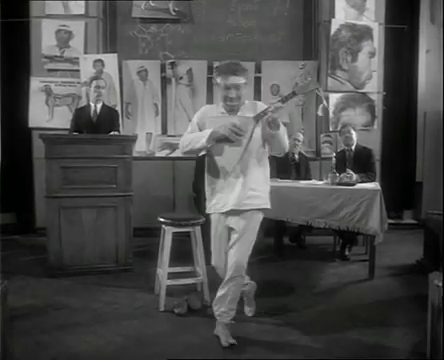
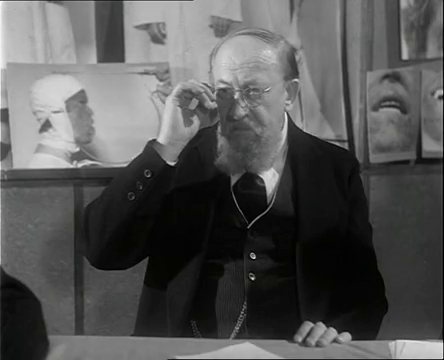
Heart of a Dog (1988)
Film review #593
Director: Vladimir Bortko
SYNOPSIS: A stray dog living on the streets of Moscow not long after the October Revolution is taken in by a surgeon. However, the surgeon intends to use the dog as part of an experimental procedure to turn him into a human being, transferring the pituitary gland and testicles of a recently deceased man into the canine. The experiment becomes a success and the dog becomes almost human, but he is not the person that the Professor intends him to be, and their differences start to quickly show…
THOUGHTS/ANALYSIS: Heart of a Dog is a 1988 film based on the 1925 book of the same name by Mikhail Bulgakov. The book was rejected for publication in the Soviet Union due to its allegorical critique of the communist revolution. The book was eventually released in 1987, and quickly became a phenomenon in the Soviet Union, which was now moving away from the communist practices through its reforms. This made-for-TV movie was released a year later to similar applause. In the beginning, we see a stray dog wandering the streets, hungry and alone, and his situation does not seem much better than the regular people on the streets, making the point that people’s lives did not really get much better for ordinary people after the October Revolution. The beginning of the film is bleak, make no mistake, but this again is by design, and you’ll need to stick with it if you want the tone to change. The dog, named Sharik, is found by a bourgeois Professor and surgeon named Philip Philippovich Preobrazhensky, and he takes him home. However, Philip has plans for the dog in an experimental new procedure in which he will transplant the pituitary gland and testicles of a recently dead man into the dog to observe its effects. What occurs is the dog starts to slowly morph into a human in a scientific breakthrough. The results of this, though, are that Sharik is far from the bourgeois Philip in terms of his behaviour and mannerisms, setting up humourous and allegorical conflict between the two. The science-fiction element of the film is not really the focus of the plot, but rather again serves as an allegorical device for the author’s criticisms of class and revolution.
One key thing to note about the film is that it is deeply entrenched in the time and place it was written: if you have no idea about the Soviet Union, the October Revolution, and the like, a vast chunk of this film is going to pass you by. Professor Philip, an ‘enlightened’ bourgeois is horrified as Sharik turns out to be a worker (which perhaps shouldn’t be surprising as he is/was a stray dog), but as this enlightened individual, never considers violence as an option, lest he become like the proletariat he dislikes so much. As mentioned, the original novel is more critical of the workers and their revolution, and pokes fun at them also, with their committees and constant need to break into songs about the revolution at every given opportunity. No one really escapes being poked fun of in the film, but again, it’s all very much rooted in the time and place it is set, so those outside of it aren’t going to get all of the small references and critiques.
This film is noted for its faithful adaptation of the original novel: it leaves nothing out, and only changes a few small details. The acting is solid, and the characters, while obviously exaggerated versions of the class archetypes they are meant to represent, don’t stray to far into being cartoonish, allowing the film to retain a sense of realism and relatability. Likewise, the comedy is drawn out through the character’s being constantly at odds at each other, and their own ideologies being their undoing, rather than a laugh-out-loud type of humour. In terms of production, the acting is solid, even the dog is played by an “acting dog” who had played in numerous films. Everything about the production is professional, and it’s difficult to find any significant flaws in the film as a whole. The enjoyment of Heart of a Dog certainly depends on how much you know about the context and setting of the film: there’s so many slight references and nuanced moments that entrench it so deeply in the early days of the Soviet Union, but the larger beats of the film do have enough for unfamiliar viewers to latch onto, and a high-quality production overall makes it an interesting and enjoyable film.
-
#592 – Press Play (2022)

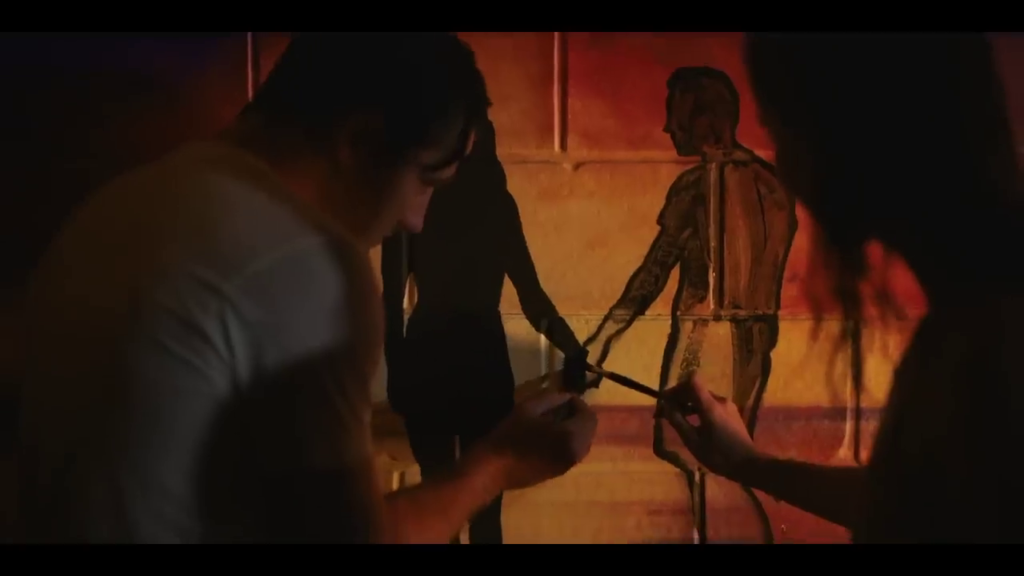


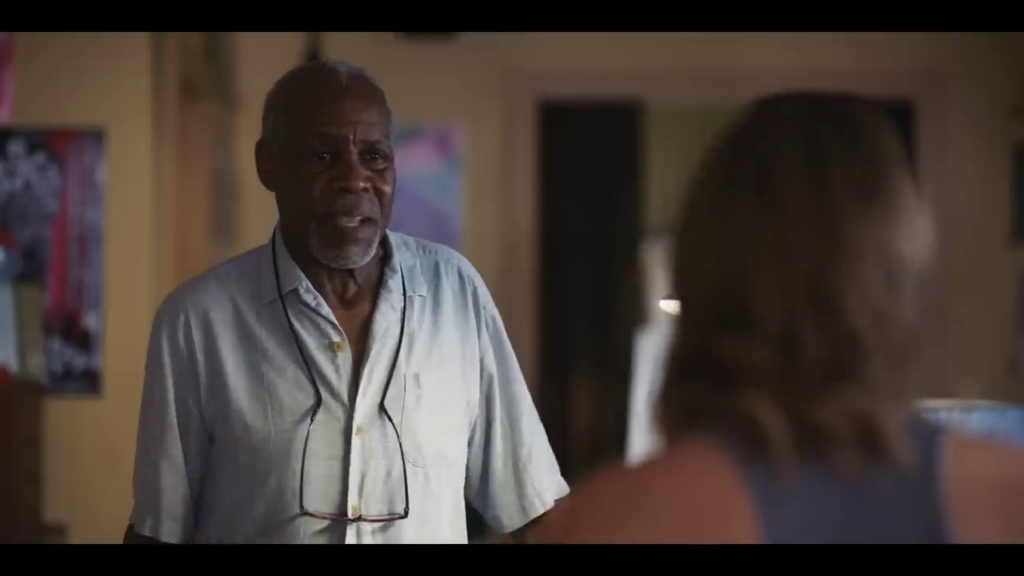

Press Play (2022)
Film review #592
Director: Greg Björkman
SYNOPSIS: After her partner dies in an accident, Laura learns that the mixtape they made together can transport her back in time, giving her a chance to save him. But things quickly become more complicated than they first seem…
THOUGHTS/ANALYSIS: Press Play is a 2022 sci-fi romance film. Laura is set up with her friend’s brother Harrison, from which a romance blossoms. Things come to a tragic end when Harrison dies in an accident, but Laura (some four years later) finds that the mixtape they made together can transport her back to specific points of time relevant to each song on the tape. She uses this chance to go back and try to save his life, but every time she intervenes it creates another problem. We see the from the start how the two meet and their relationship develop, but the main issue of the film quickly emerges from this: One, we are only shown the key events in their relationship one after another, squeezed into the first twenty minutes, which just feels like you’re moving from one moment in time to another without any real connection, and no time or space or a relationship or onscreen chemistry to develop organically. As such, there’s a lack of investment in the relationship and characters, and everything is a little fragmented. I get that it is partly this way because it has to reflect the mixtape of having songs that are part of important parts of their relationship, but without something to bring them together, it just flat out doesn’t work. The concept of the time travelling mixtape is interesting, but very much underutilised and underexplored. There’s a part where Laura decides to read up on the theory of time travel (as you do), but nothing really comes of it, and it doesn’t add anything to the plot. Keeping the mechanics of time travel relatively light might be so as to not alienate the viewers are there for the romance genre, as nothing is as offputting as being overwhelmed by technical jargon. As mentioned though, the romance element is severely underdeveloped as well. The acting isn’t the problem on the whole, and Clara Rugaard as Laura does a good job. Lewis Pullman as Harrison really doesn’t convince with the more emotional moments though, and always feels like he is just acting. Whether it is him, or the direction he is given, he just doesn’t portray quite the right emotion.
For a film that relies quite a lot on music, the soundtrack on the whole is fairly bland and forgettable. They never really discuss (apart from the first song) who the band playing are, or what the song really means; it just happens to be playing by coincidence at certain times. It is perhaps inescapable to compare to a film like Hi Fidelity, which also had the concept of music and relationships at its core, but that film allowed the viewer to build up a picture of the main character based on his music interests, using familiar songs. In Press Play, we have artists and songs you’ve probably never heard, and which sound all a bit too familiar. The lyrics of the songs almost always just verbalise what is happening in the film at that moment, leaving little room for interpretation, and it all just feels a bit on the nose. Also, I can’t help but notice a few elements borrowed from the Life is Strange video game, including the time travel, the indie soundtrack, and even the credits using a very similar font and animation. I’m not the only person that sees this apparently either. I don’t think Press Play is meant to be an emotionally heavy film, but it really does keep everything light in all regards: the onscreen chemistry between the actors is not there, the relationship lacks depth, there’s no real humour to break things up, and the science-fiction element isn’t grappled with to give the film a novel twist.
-
#591 – Covid-21: Lethal Virus (2021)
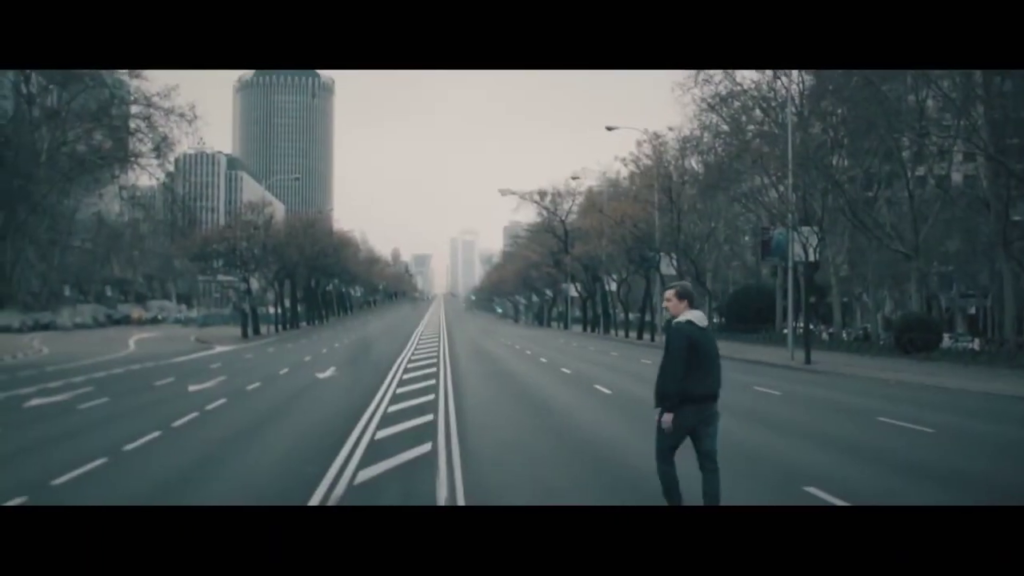
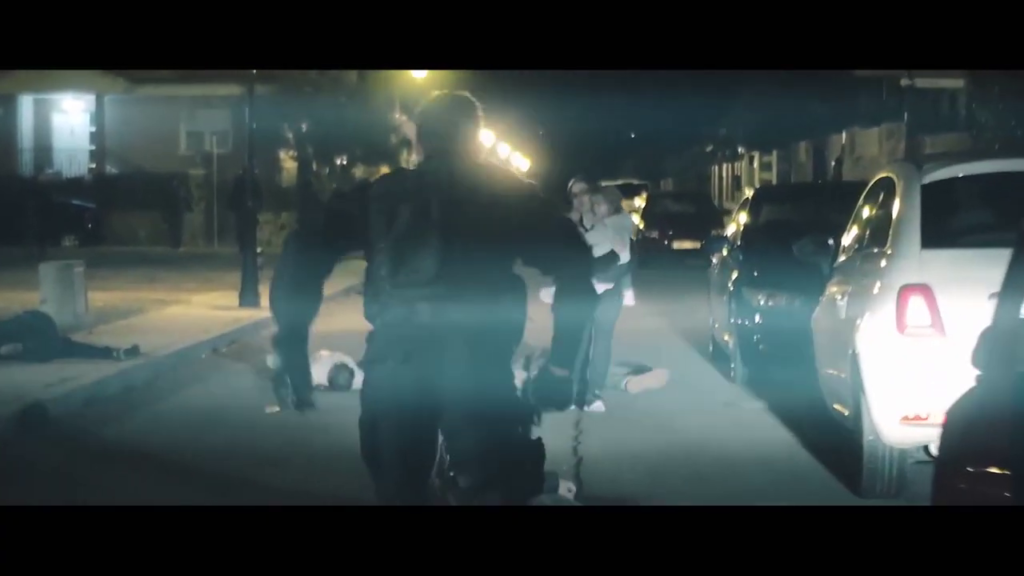
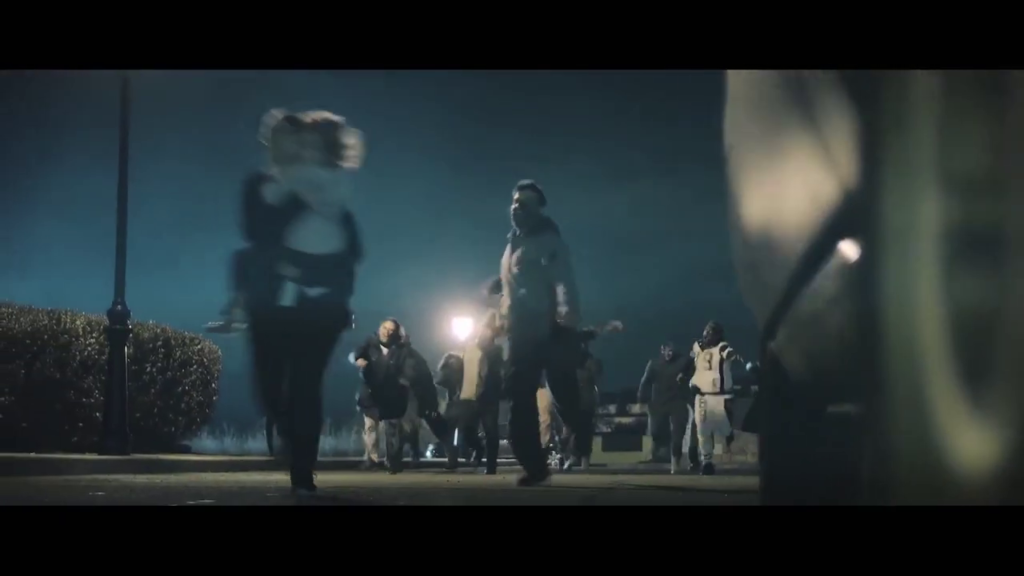
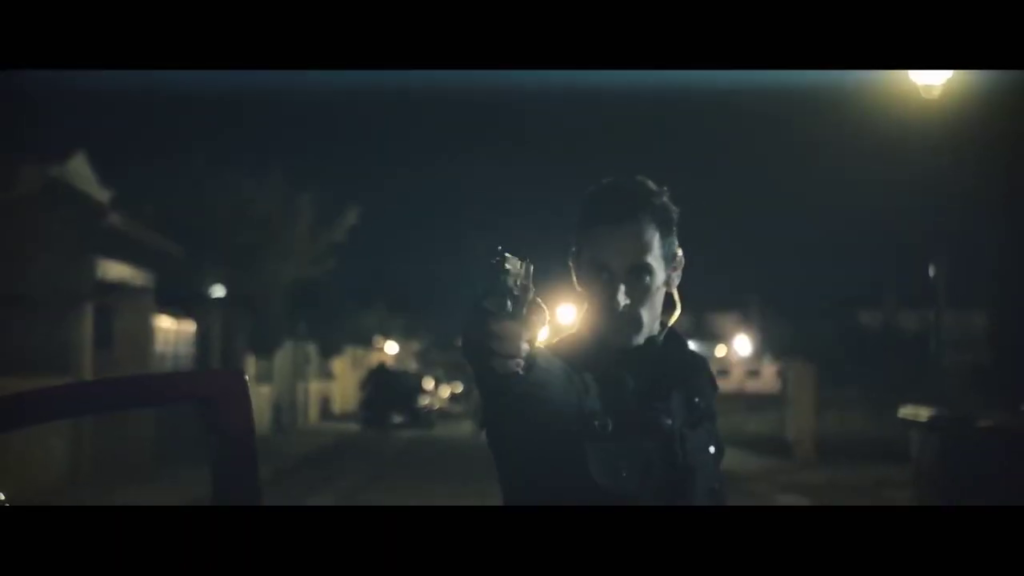
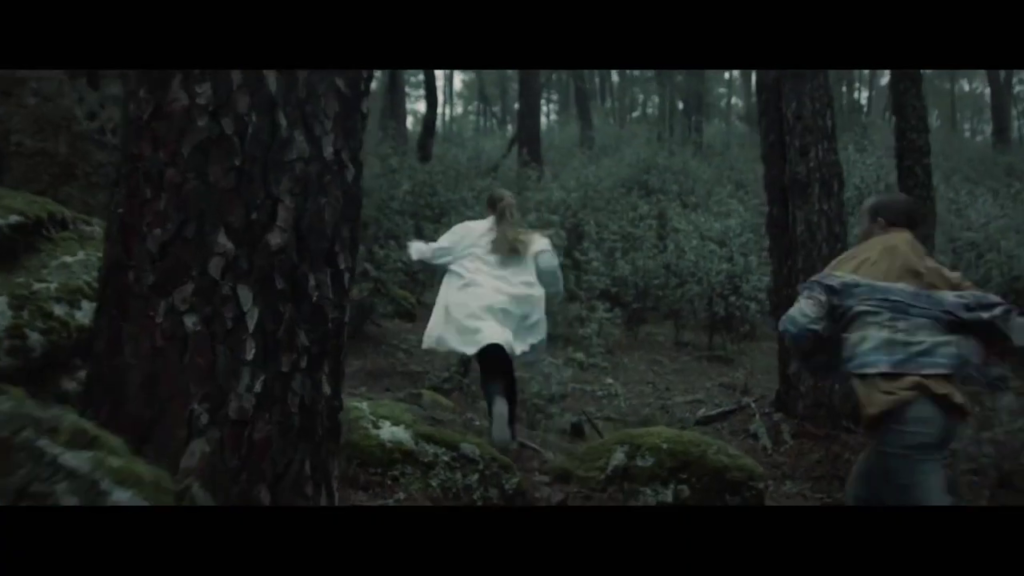
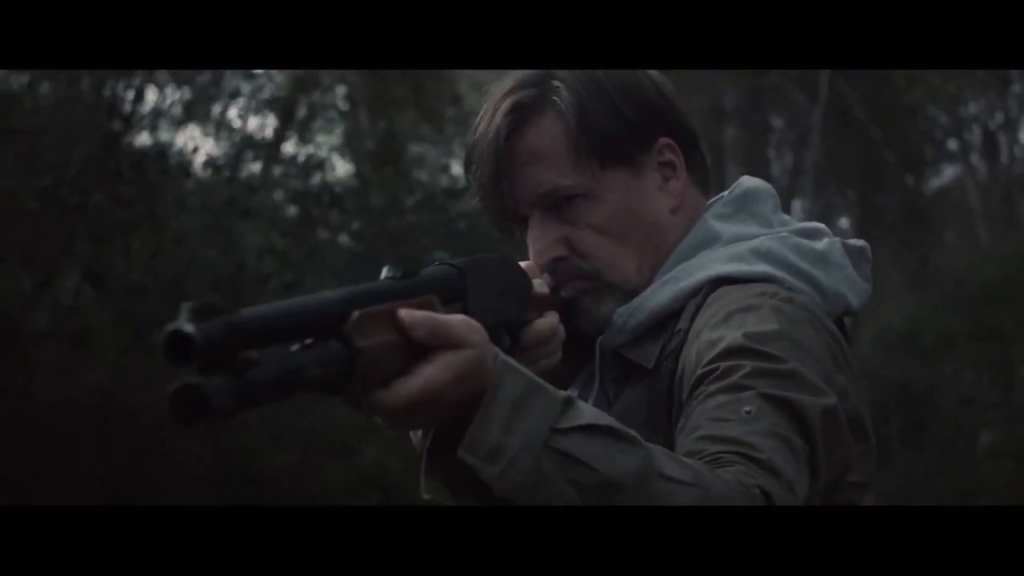
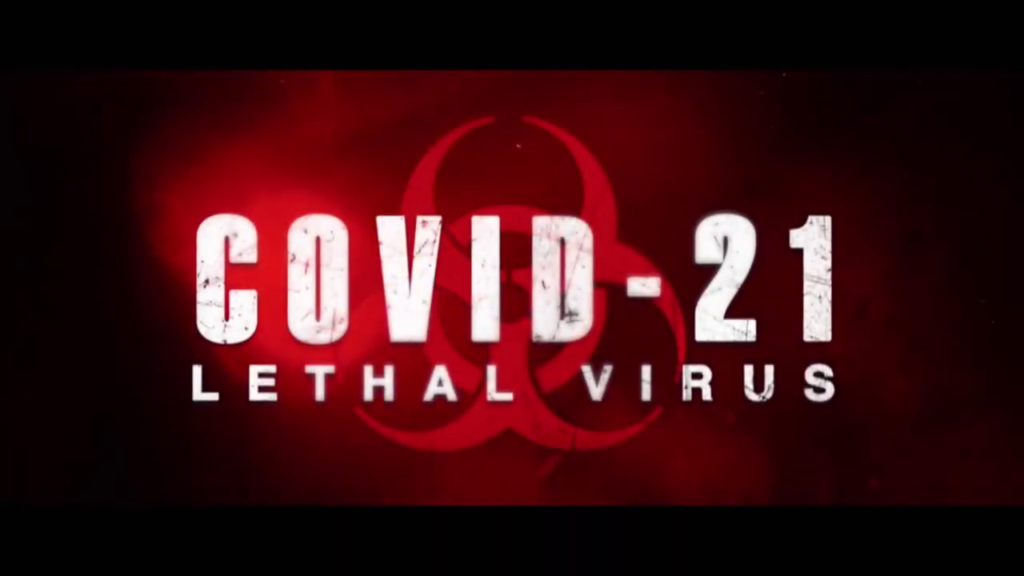
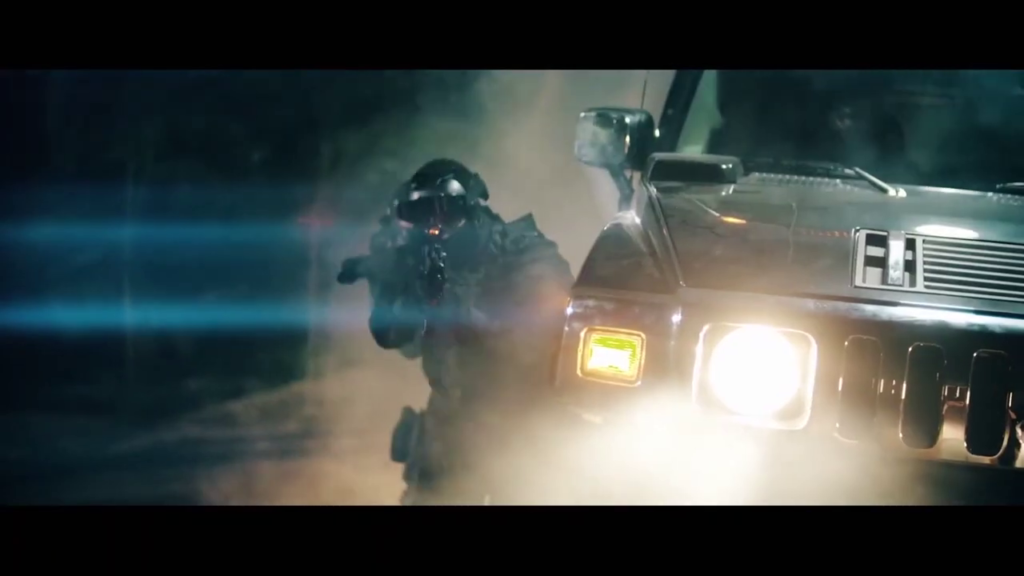
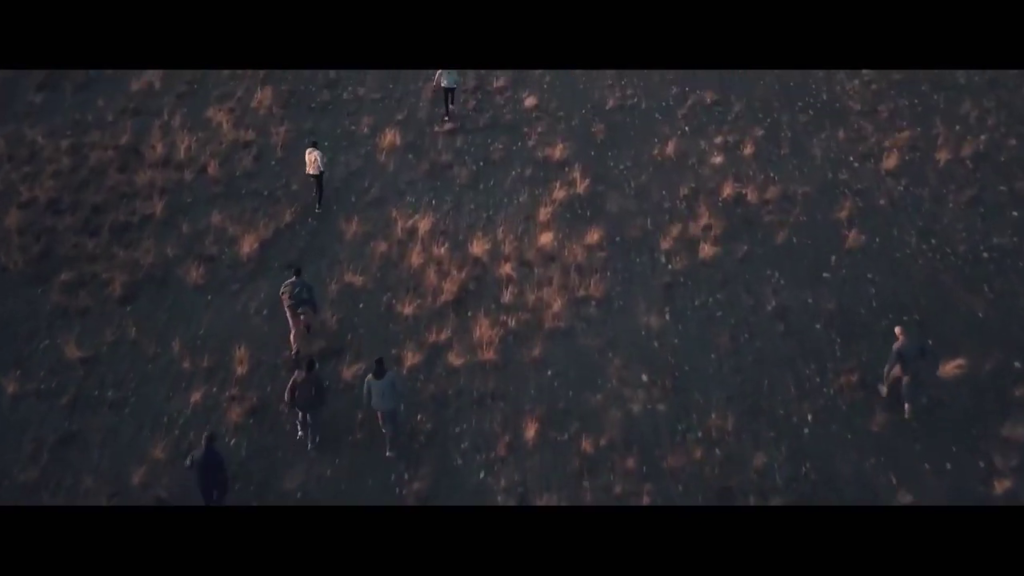
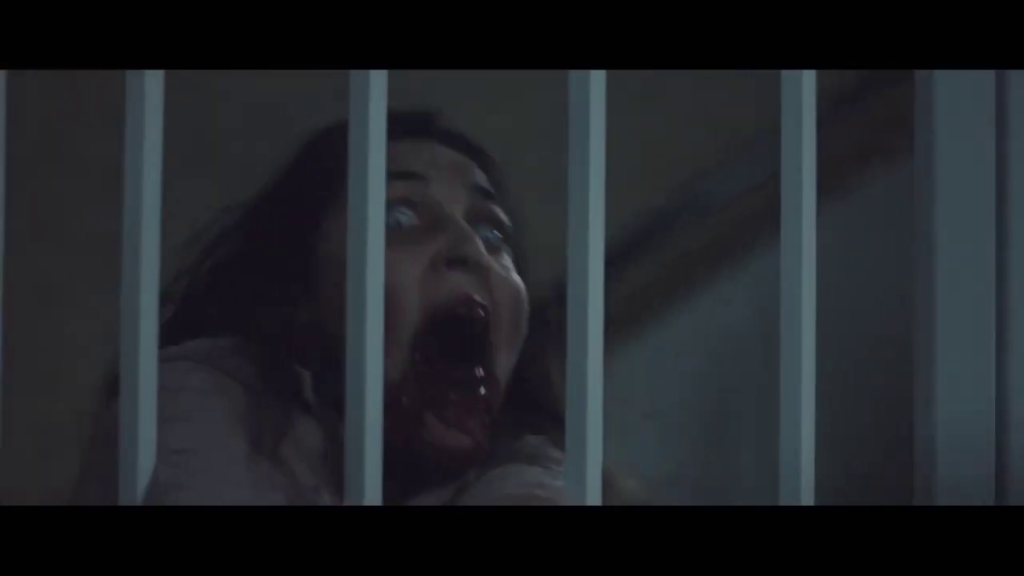
Covid-21: Lethal Virus (2021)
Film review #591
Director: Daniel Hernández Torrado
SYNOPSIS: After a new strain of Covid turns most people into zombies, a biochemist is travelling to a laboratory to work on a cure when her convoy is attacked by zombies. She runs into a lone survivor, who begrudgingly accompanies her, and the two have to survive the harsh countryside overrun with zombies…
THOUGHTS/ANALYSIS: Covid-21: Lethal Virus is a 2021 zombie film. It is also (perhaps unsurprisingly) part of a host of covid-zombie movies that appeared around this time. The film revolves around a typical zombie plot (with a covid twist): the melting of polar ice has released an ancient super strain of covid that turns people into zombies. Following on from that statement which should never be uttered, we have the typical post-apocalypse world where the survivors have to avoid becoming undead themselves. Into this unoriginal setup we have a biochemist named Allyson, who is being escorted to a secret lab where she will be able to develop a cure. Unfortunately, her convoy is attacked by zombies, and because no one in this film has ever seen a zombie film before, the convoy is overrun and Allyson has to make it to the lab on her own. Well, until she runs into Scott, an angry loner who sort of accompanies her to argue all the way. The story consists mostly of this bickering and occasionally hacking away at some zombies, without any real direction or development. There’s nothing original or interesting about this post-apocalyptic world, and it’s all been done before in better films. The use of “covid” as part of the premise is irrelevant, as this “super strain” is only mentioned off-hand in dialogue once, and was probably only put in to promote the film.
The characters are all dull and unlikable: apart from Allyson and Scott and their distinct lack of any chemistry, there’s also two random soldier guys who are walking through the woods too, whose little side-story has no real purpose other than to shove some more action scenes in, I suppose. But again, the lack of any originality makes it uninteresting. All of this is supplemented by some poor acting and flat deliveries, and there are points where the actors clearly mess up their lines. The little twist at the end doesn’t really add much when the characters always feel disposable and without purpose anyway.
The production as a whole feels very unprofessional, with horrid, shaky, close-up shots that make it difficult to follow what is going on (and to avoid paying for backgrounds and sets), the colours are all dull and washed out, and the lighting is haphazard and nonsensical. I know you can’t be too judgmental when it’s an obvious low budget film, but there’s still a lot more that could have been done with what they had. There’s nothing to recommend Covid 21: Lethal Virus in any way: it’s unoriginal, unprofessional, unstructured, and any enjoyment you might get out of it being a “bad” film is scuppered by it being just so incredibly dull. Avoid.
-
#590 – 8-Bit Christmas (2021)
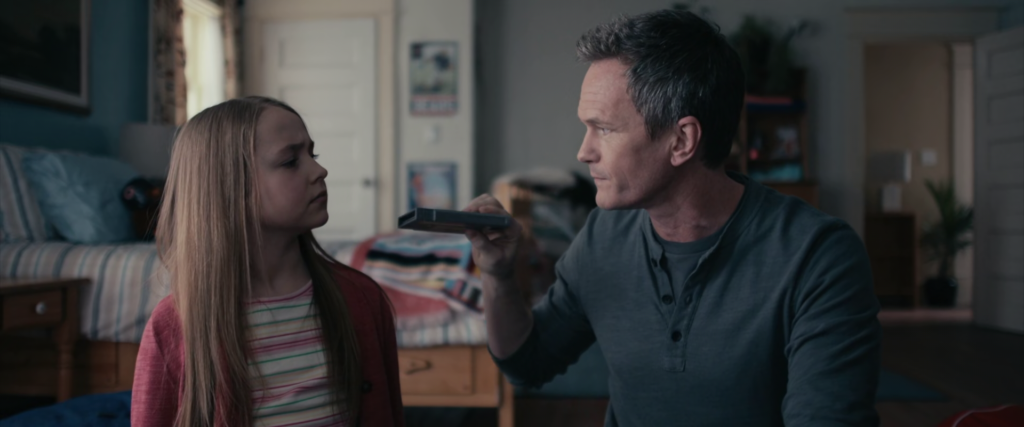
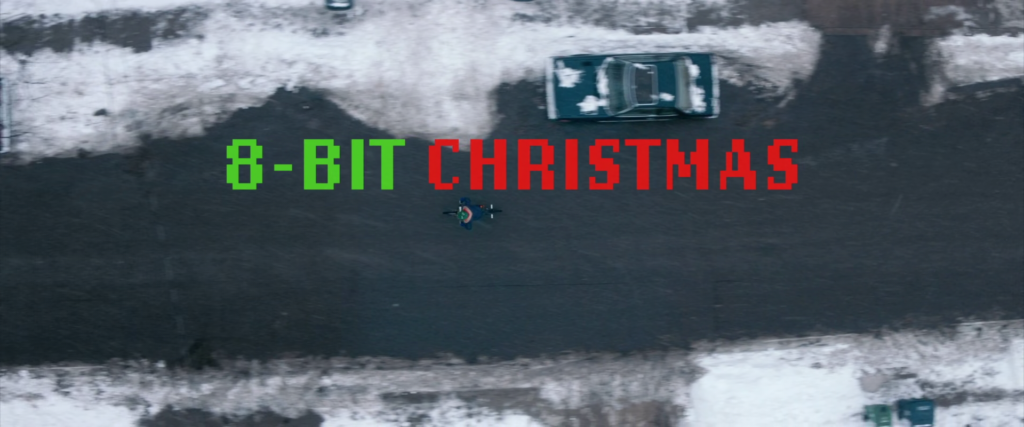
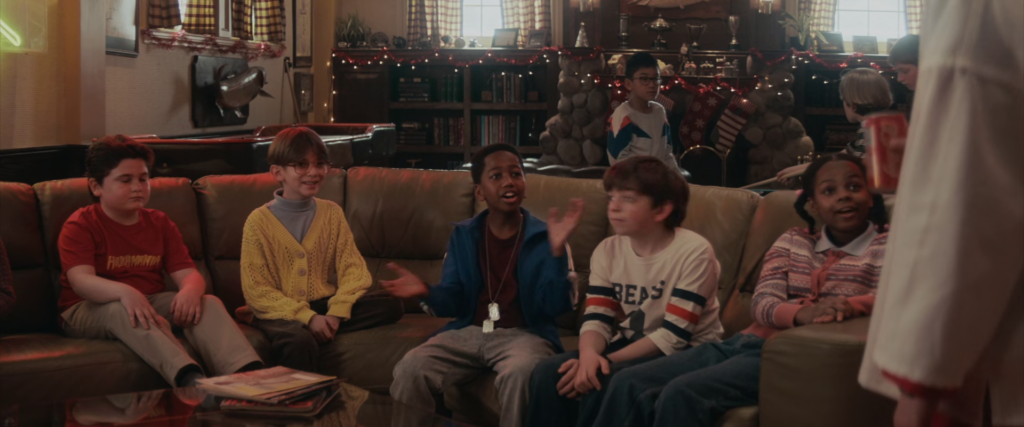
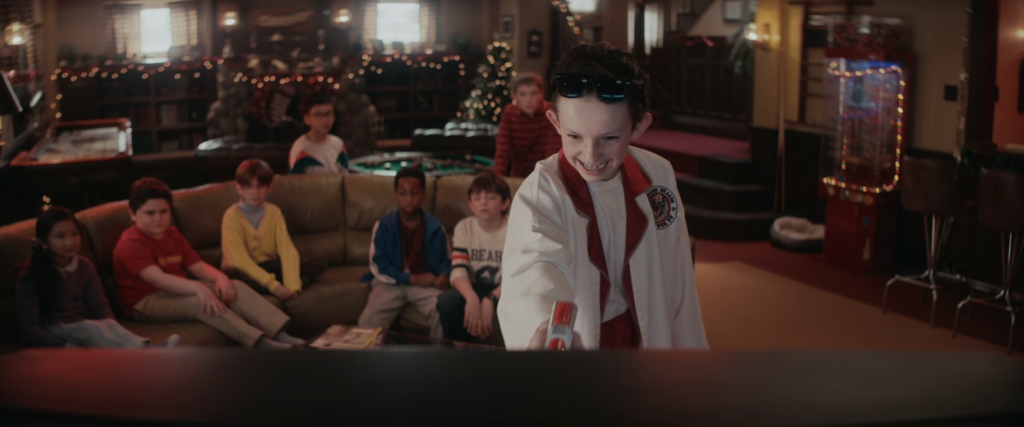



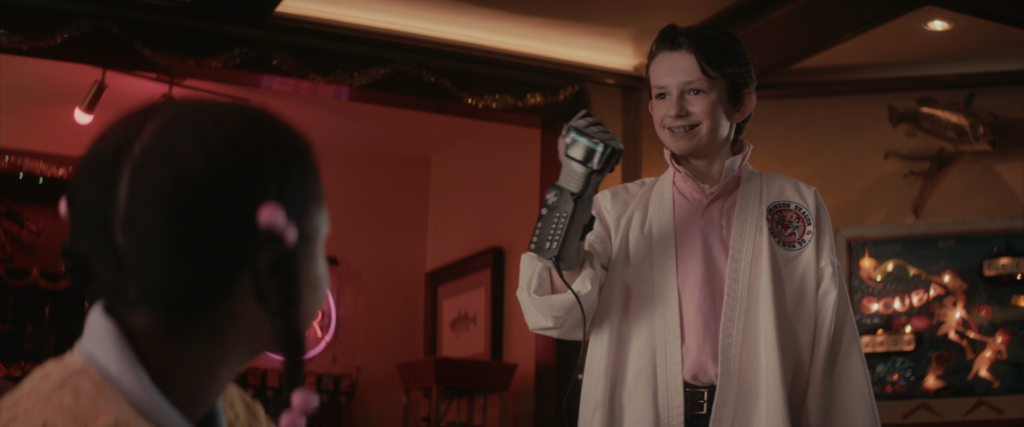

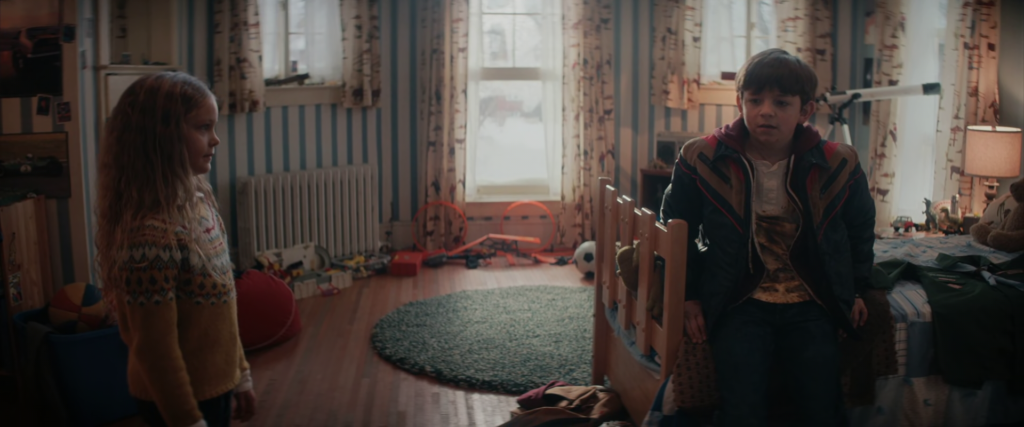
8-Bit Christmas (2021)
Film review #590
Director: Michael Dowse
SYNOPSIS: Jake Doyle is pestered for a mobile phone by his daughter. Visiting his parents for the Christmas holidays, Jake recounts a similar story from when he was young, when he was desperate for his parents to buy him the one thing he wanted more than anything…a “Nintendo”…
THOUGHTS/ANALYSIS: 8-Bit Christmas is a 2021 Christmas comedy film. As Jake Doyle’s daughter pesters him for a phone of her own for Christmas, Jake regales her with a story of his youth of a similar predicament he faced: growing up in the 1980’s, the one thing he wanted more than anything else…a “Nintendo” (or Nintendo Entertainment System). The film hails back to the films of that very era, riding a certain wave of nostalgia about the 1980s and a time when only a few privileged kids would own a “Nintendo” and be the most popular kids in school. The story is told through flashback with Jake narrating the story, and occasional cut backs to the present with Jake and his daughter playing on his Nintendo. While the beginning has quite a bit of narration that interrupts the smooth telling of the story, it does eventually settle into a more seamless rhythm. rather than organically introduce the cast, the narration does tell us about nearly every character, which is a bit distracting, but I suppose you don’t really need to establish the characters when they’re all playing very typical roles and personalities. Again, riding that certain wave of nostalgia, it is appealing to the fans of 80’s films that have all of these tropes and characters anyway, so you don’t need too much of an introduction. The problem with this is – as with a lot of movies that try and capture the feel of that time period – is that it is never going to move out of the shadow of those films, so you’re wondering why you would watch this instead of the other films it is paying homage to.
The film is balanced between both appealing to younger audiences, but also those who grew up in the 1980’s and have children of their own. There’s a lack of specific references that would only appeal to particular demographics, so it’s intended as a more rounded picture that the whole family can enjoy, but I can’t help but feel it would have been better to lean more into the retro games aspect of it.
-
#589 – 7:11pm (2023)
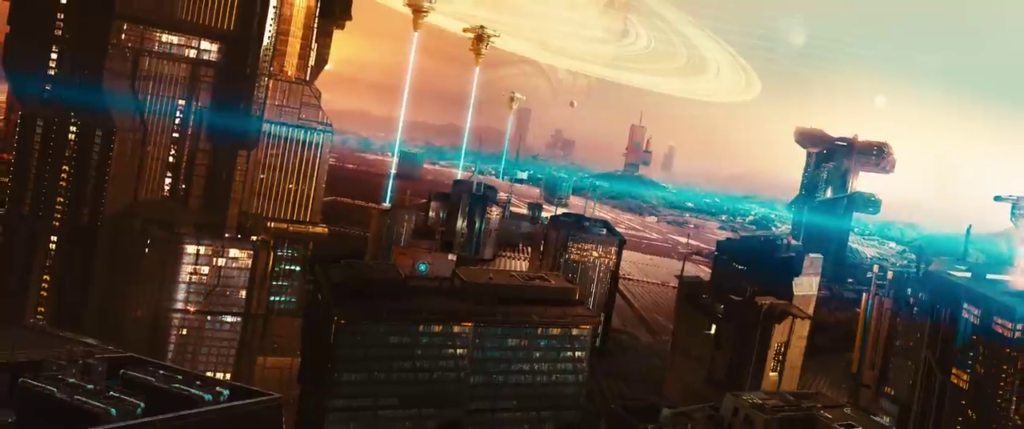

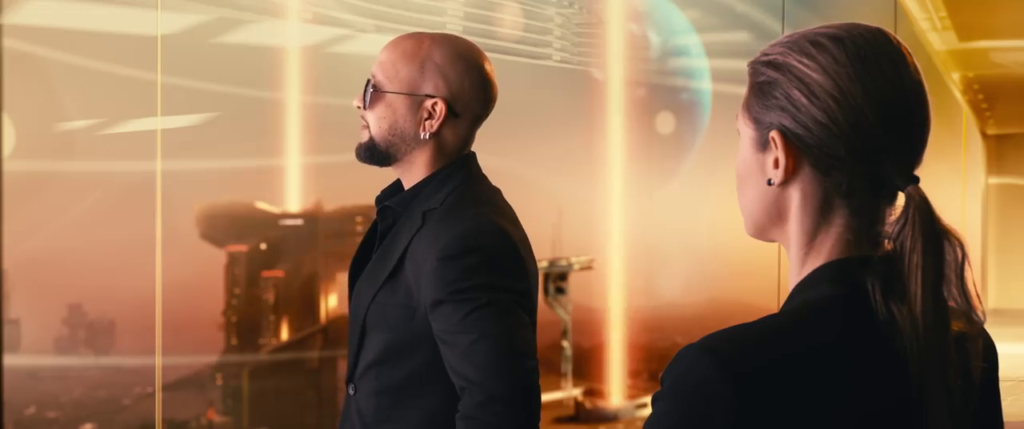
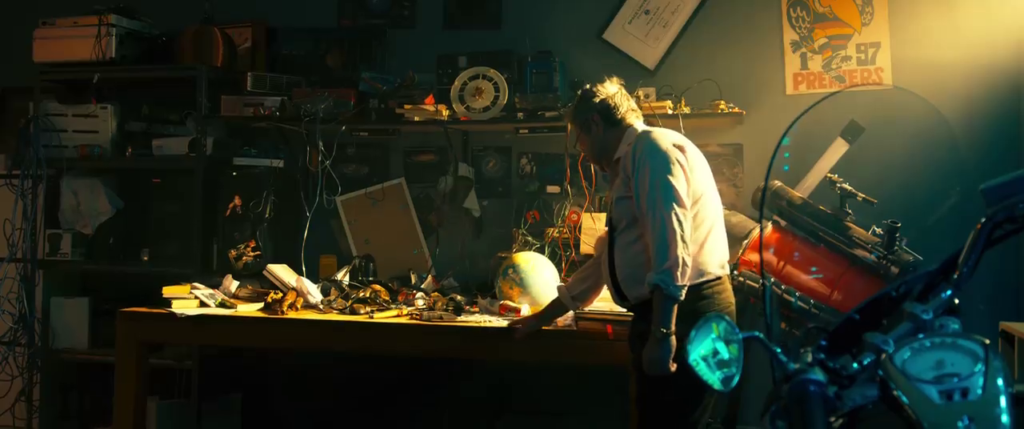
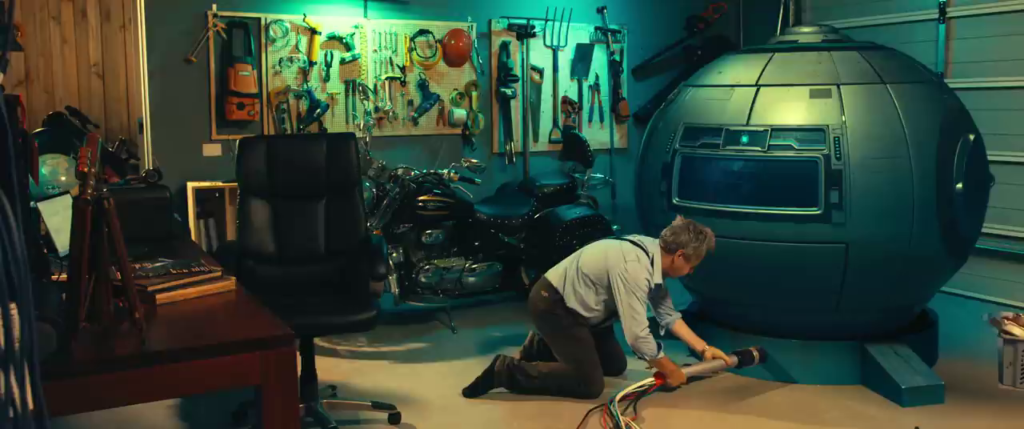


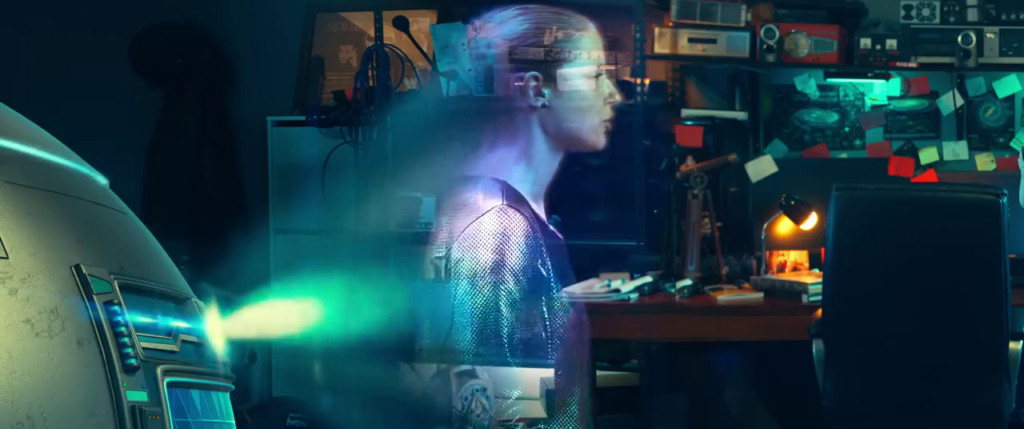
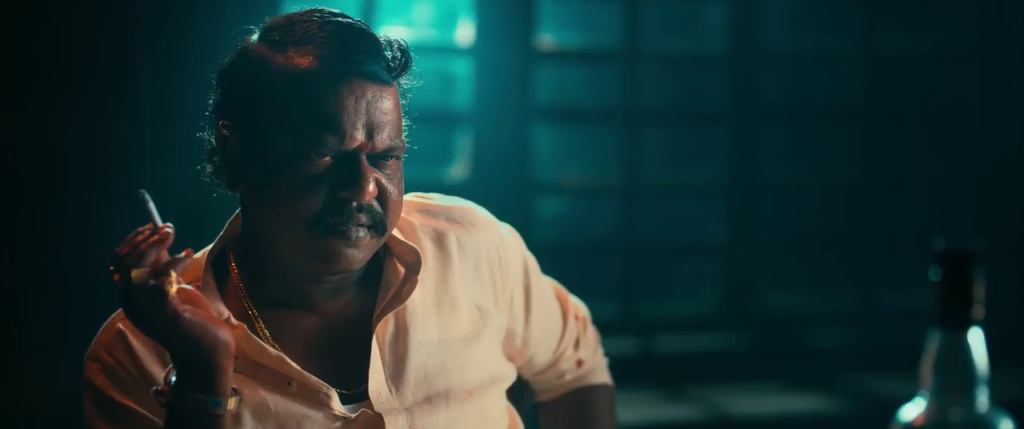

7:11pm (2023)
Film review #589
Director: Chaitu Madala
SYNOPSIS: Ravi lives in the idyllic village of Hamsaladeevi. However, dark forces are working to sell off the village and turn it into a nuclear dump site. Meanwhile, in the future on a distant planet, the last hope of a dying planet is to go back in time to find the important research which can save them. Ravi is thrust right into the midst of all these problems as he seeks to save the village and everyone…
THOUGHTS/ANALYSIS: 7:11pm is a 2023 Telugu sci-fi film. The film centres around the idyllic Indian village of Hamsaladeevi, where Ravi lives. However, evil businessmen are in the process of trying to sell off the village and turn it into a nuclear waste dump. Meanwhile, in the future of a distant planet, the human inhabitants require knowledge from the past to save their planet, and must send someone back in time to Ravi’s village to find it. As you can tell, there’s a lot of different plots swirling around throughout the film: some ranging from the typical romance and corrupt businessmen as you find a lot in Telugu cinema, to some science-fiction elements which are less common. The mash-up of different story elements is very much unbalanced, and things only come together at the last minute, with some plot elements being absent for the majority of the film. The script definitely needed winding back on it’s ambition to just do seemingly everything. The science-fiction element doesn’t offer much, and it feels very similar to Back to the Future, and you’re never going to beat Back to the Future on it’s own turf, and are always going to come off as a cheap imitation. The film could probably have cut out the whole “future aliens” thing and it would have made it flow better immediately.
The film is split into distinct parts, with the outset establishing Ravi’s character and the village, and then Ravi being sent to the future (and Australia, for some reason), and finally, the finale where Ravi goes back and basically fixes everything. These different parts just don’t really connect to each other, with the chunk of the film being set in Australia in the future (of 2024) just having very little to do with anything, and could probably be it’s own film). The climax feels very rushed, as everything is hurriedly pieced together and the plot jumps to each little point to deal with it before quickly moving on to the next one. The different elements lack the depth necessary to leave any kind of impact.
The acting and performances in the film are decent enough and without issue. The special effects aren’t groundbreaking, but serve their purpose. One thing that might stand out is that there’s a fair amount of violence and graphic gore, the scenes in which it is present just don’t seem to match the rest of the film. It has a few twists and turns which are mildly interesting, but 7:11pm lacks coherence and appropriate pacing to handle the sheer volume of ideas and plot elements it wants to string together. Messy, but has some momentum to it, even if it lacks direction.
-
#588 – Crawler (2009)

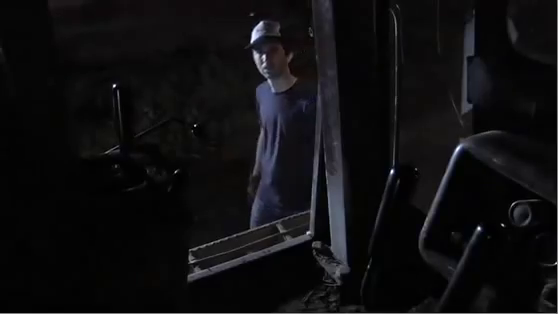
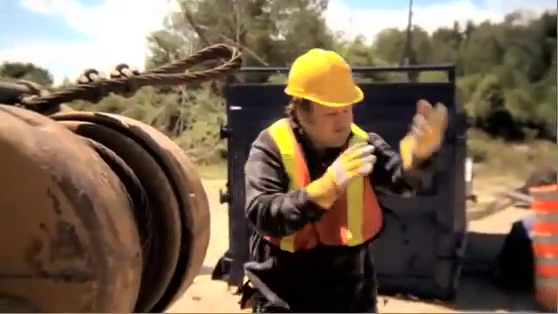


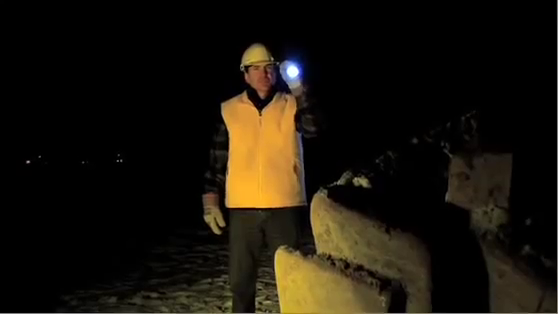
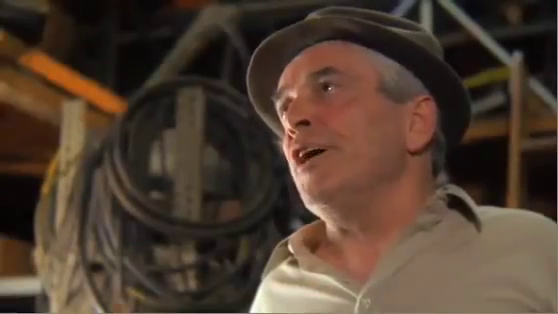
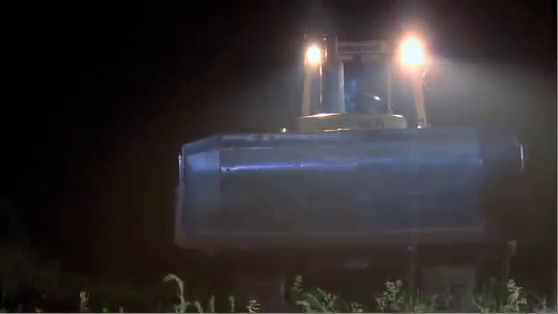

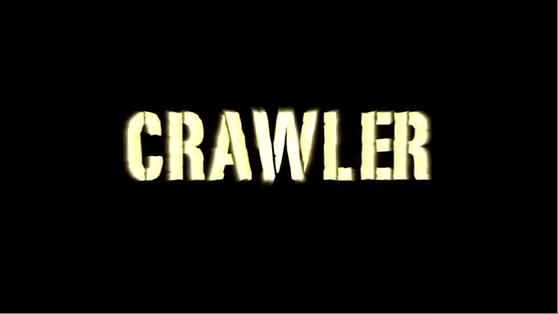
Crawler (2009)
Film review #588
Director: Sv Bell
SYNOPSIS: A construction site hires a bulldozer, but due to a mishap, they get sent the wrong one. When strange things start happening on site and people start disappearing, it seems that, somehow, this bulldozer is at the centre of it all…
THOUGHTS/ANALYSIS: Crawler is a 2009 sci-fi horror film all about a killer bulldozer. The whole concept might sound absurd, or it actually might sound familiar, as the 1974 TV movie Killdozer centred around the same concept of a killer piece of construction machinery. This time, a bulldozer is hired for a construction site, but because the driver was late picking it up, it went to someone else. Desperate, the guy tries to convince the guy to rent him another one which is apparently not available for rent. The next day, the bulldozer shows up at the construction site, with the driver nowhere in sight. When a number of strange happenings occur at the site, the workers suspect, however implausibly, that the bulldozer is somehow involved. The plot works it’s way up very slowly, comprising early on of scenes of dialogue between characters that fail to ingratiate themselves to viewers or stand out in any real way. It is worth remembering that the whole thing is a little tongue-in-cheek and knows it has limits, but it nevertheless plays it straight throughout. The concept of the killer dozer is unique enough (save for the aforementioned TV movie), and the film does eventually develop along lines you might not expect, but there’s nothing too memorable about the story.
The strengths of the film are in the practical effects: the alien elements are fairly detailed, and the gore is pretty convincing, although it often looks like unrecognisable mush. The weaknesses of the film stretch from the monotone delivery of the lines from the acting, to the poor lighting and editing of action scenes which is composed of random short cuts that fade in and out, and disrupt any sense of flow. The bad certainly outweighs the good, and overall Crawler, while having a few good points, has little going for it either in being so-bad-its-good, or actually creating a a decent horror story. A severe lack of tension and urgency, both due to the sluggish pace of the film and the flat delivery of the actors, make it a dull and uninspiring experience.
-
#587 – Goosebumps 2: Haunted Halloween (2018)








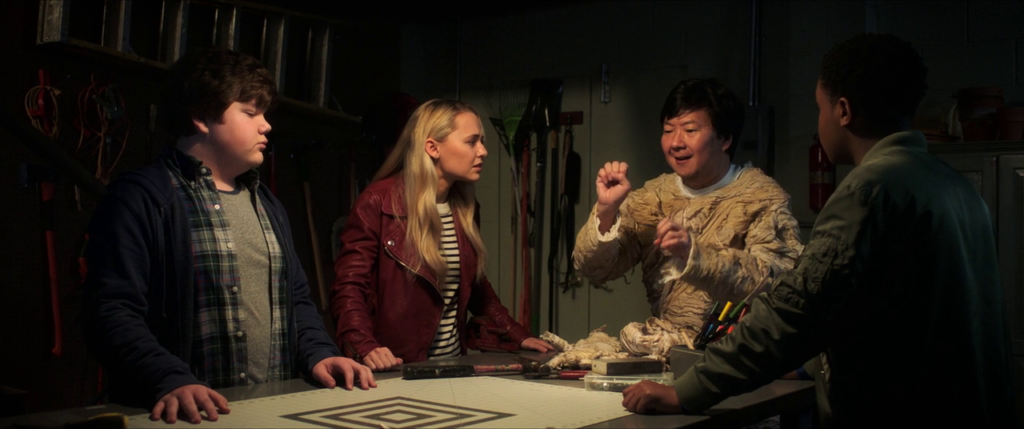

Goosebumps 2: Haunted Halloween (2018)
Film review #587
Director: Ari Sandel
SYNOPSIS: Teenager Sarah Quinn is struggling to write an essay for her college application. Meanwhile, her brother and his friend find a mysterious book at an abandoned house, which when opened releases Slappy, an evil dummy, to appear. Slappy is more than just a dummy though; he is alive, and sets about unleashing all sorts of monsters just in time for Halloween. It’s up to Sarah and her brother (and his friend) to stop Slappy before he unleashes pure chaos on the town…
THOUGHTS/ANALYSIS: Goosebumps 2: Haunted Halloween is a 2018 film and a sequel to the 2015 film Goosebumps, based on the series of horror stories written by R.L. Stine. Set three years after the first film and in a different location, we see teenager Sarah Quinn trying to write her college essay, but is constantly distracted by her Mother wanting to babysit her brother and his friend, who is stopping with them over Halloween. The plot revolves around Slappy, the evil dummy who was the villain the previous film, being released from one of R.L. Stine’s unfinished books, and does what he does best: unleashes monsters and horrors of all sorts to terrorise the town, leaving Sarah and the others to stop him. The plot is very similar to the first film, but while the first one managed to offer a twist that made things interesting with the Goosebumps books themselves forming part of the story, here that little unique twist is absent. The film revolves around an unfinished story by R.L. Stine called “Haunted Halloween,” which apparently was an early book that was very rough and unfinished, so the monsters that are unleashed have that feeling of being unpolished. This does, however, have the feeling of making the film also rough and incomplete, with the story feeling very weak and uninspired. There’s certainly a way to make the premise work without it bleeding into the quality of the film itself, but as it stands, the film ends up being feeling underdeveloped, and desperate in needing a good rewrite or two.
The characters are all fairly unremarkable: while the first film was the same, it had Jack Black as R.L. Stine to bring everyone together and inject enough energy to keep things interesting. Here, we get no such thing: Jack Black does appear in a scene halfway through and at the end to somewhat explain everything, but in teasing him in this way without actually doing anything probably hurts the film more than anything. While Jack Black was such a prominent role in the first film, here, it would probably have been better if he wasn’t in it at all, if all he does is show up at the end and explain everything, leaving a feeling of disappointment you’re not going to see him do anything interesting. The whole subplot about Slappy wanting a family wasn’t something that was a part of the first film, so it just feel like it comes out of nowhere, and doesn’t further his character in any way. Overall, Goosebumps 2 is a very unpolished film that fails to get going in any way: the enjoyable elements of the first film are gone and we are left with a predictable, low-stakes story that offers nothing that the previous film didn’t.
-
#586 – Goosebumps (2015)

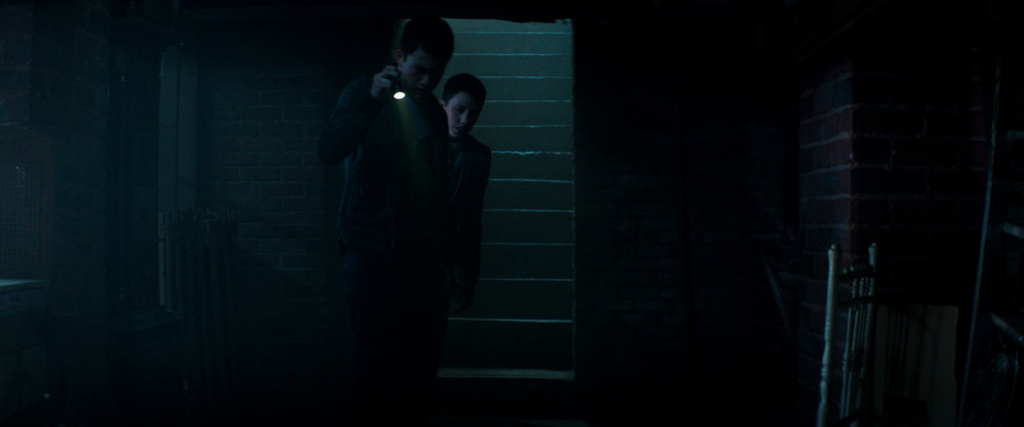
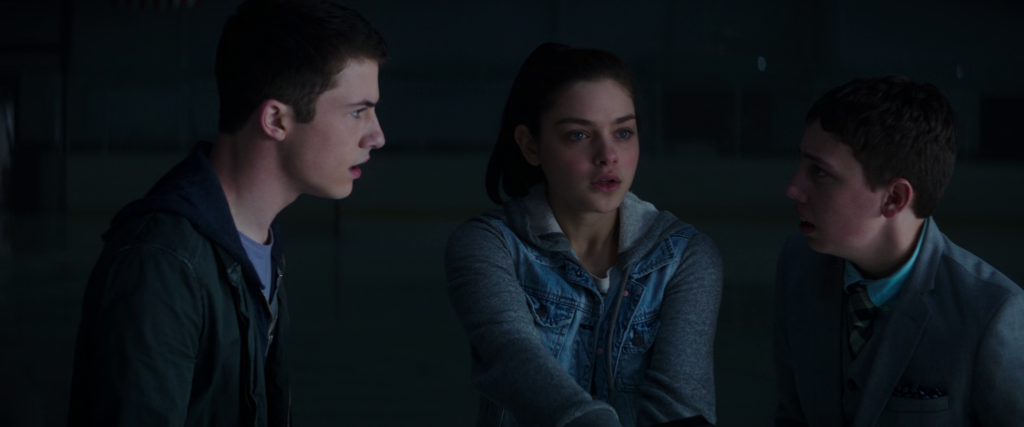

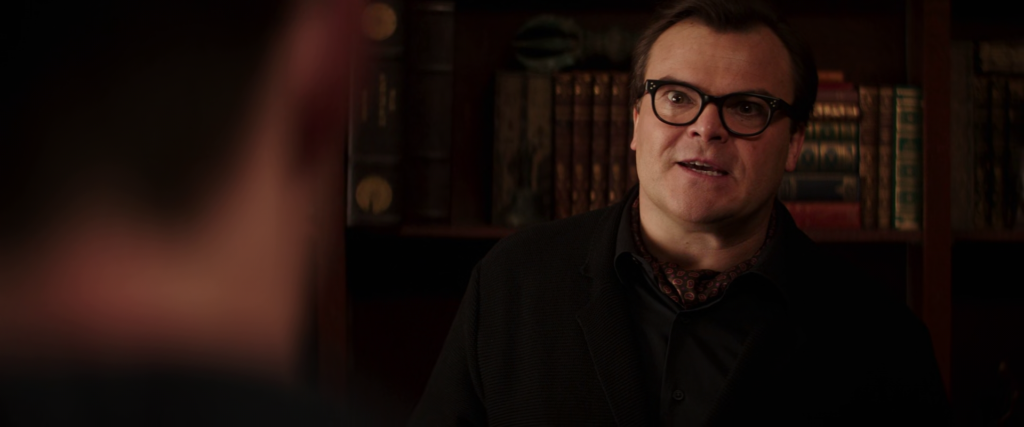
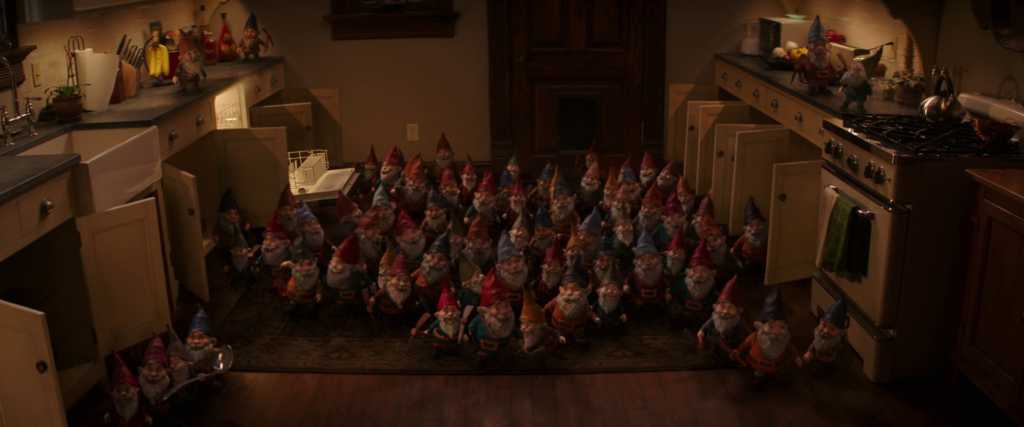
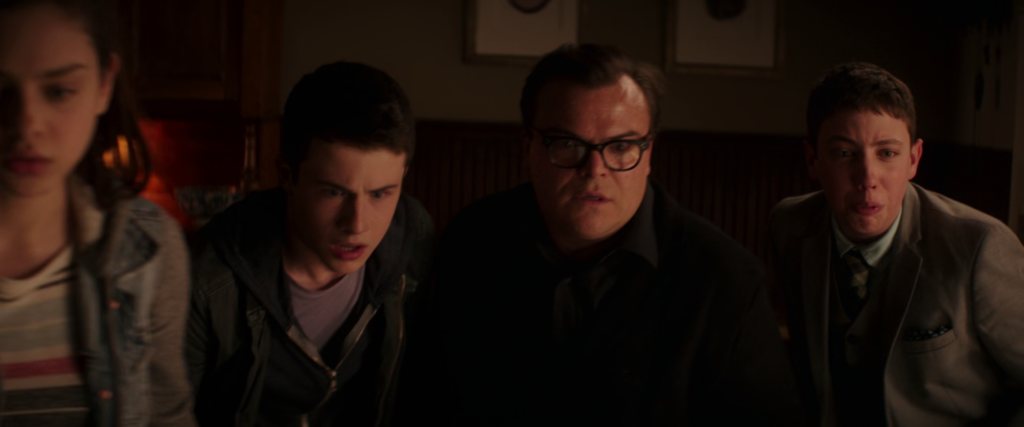

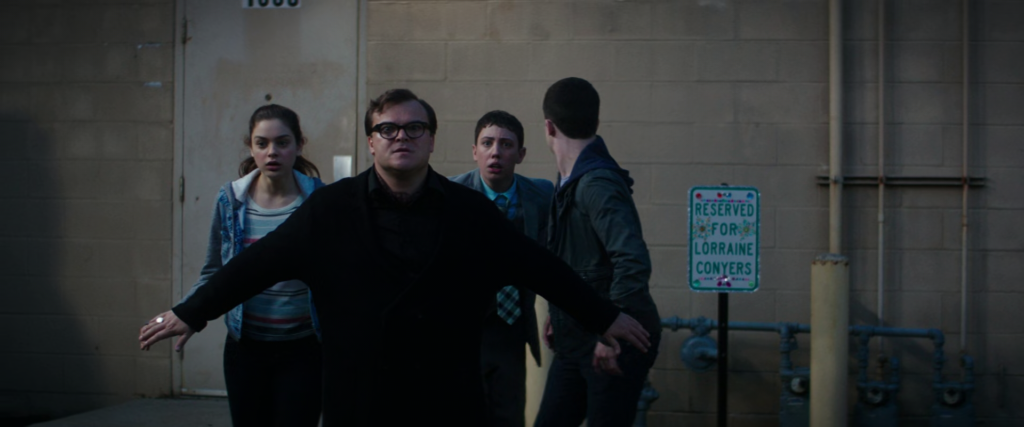
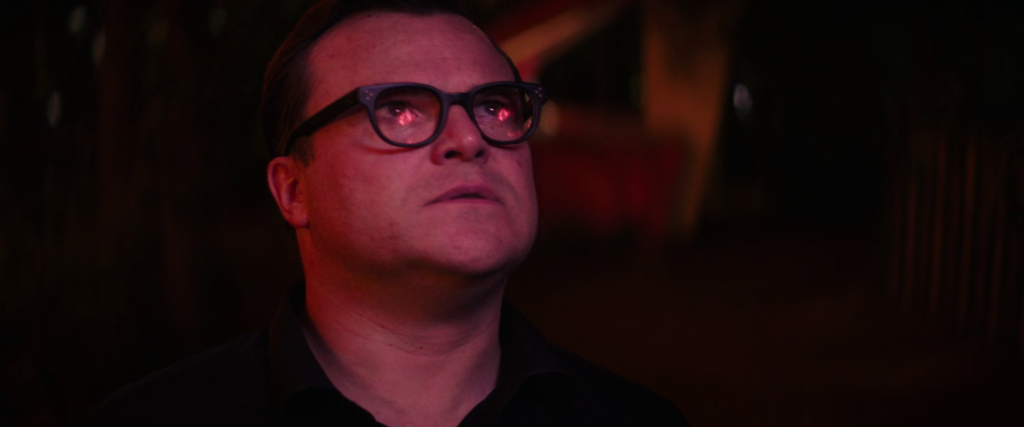
Goosebumps (2015)
Film review #586
Director: Rob Letterman
SYNOPSIS: Zach Cooper moves with his Mother to the town of Madison, Delaware, where he learns he has a strange new neighbour. Things take a twist when Zach learns that his new neighbour is none other than R.L. Stine, author of the Goosebumps series of books, and the monsters from his books have accidentally been brought to life…
THOUGHTS/ANALYSIS: Goosebumps is a 2015 film based on the series of horror books by R.L. Stine. The film starts up in a very typical way, introducing teenager Zach Cooper and his Mother moving to a new town and having to get used to a new school and all of that: a situation you’ve seen in films plenty of times. Fortunately, the film doesn’t linger too long on it, and it’s somewhat necessary to provide the grounds for the film’s twist. Zach learns that his odd neighbour is none other than R.L. Stine, the author of the Goosebumps series, and the creations in his horror stories are very much real; as he finds out when the monsters are released from their books to terrorise the town. The meta-twist of the film, making R.L. Stine (played by Jack Black) a character and referencing the actual books is implemented well, and provides a good way of incorporating the different characters from the books. If you’re a fan of the series, you’ll appreciate the different monsters that appear, but even if you’re not familiar with them, it doesn’t impact the experience in any way.
What the film does well is – when it kicks off with the monsters being unleashed – that it keeps up an unrelenting pace and energy as it moves along without any real lulls. The different parts of the film aren’t really anything unique, but it never slows down enough to make it boring. Part of this is due to Jack Black’s portrayal of R.L. Stine, as he brings his usual energy to the role and to basically steal every scene he is in. If you’re not a fan of Jack Black, maybe you’ll have an issue with the film, but otherwise you can certainly enjoy the ride. The rest of the cast is fairly uninteresting and don’t really develop beyond their typical roles, but again it’s not that much of an issue since they aren’t really the ones driving the plot.
Overall, Goosebumps overcomes a predictable setup with a self-referential twist that works well, with a constant energy and entertainment that doesn’t give you a chance to get bored. Like the series itself, it is horror for kids, so there’s no real scares or frights to be had, but again, it focuses more on the action and self-referential humour that make the film work in it’s own right. Not perfect, but entertaining enough, particularly if you’re a fan of the franchise.


